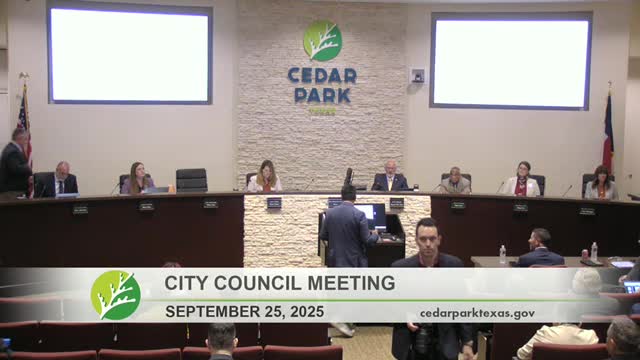Article not found
This article is no longer available. But don't worry—we've gathered other articles that discuss the same topic.
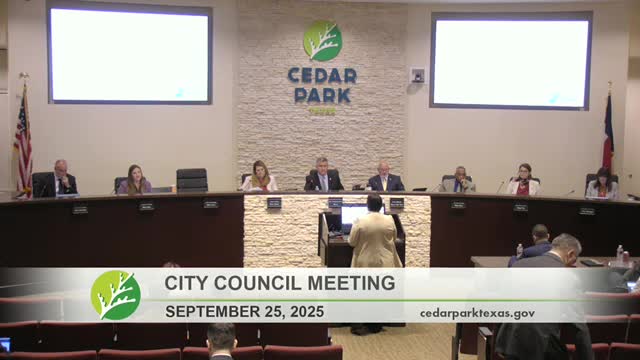
Cedar Park council moves forward on contracts, grant support and transit pilot; votes at a glance
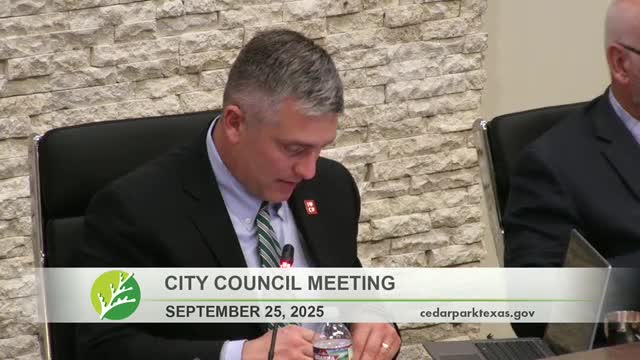
Council approves rezoning near Lakeline Boulevard after debate over drive‑thru and competing businesses
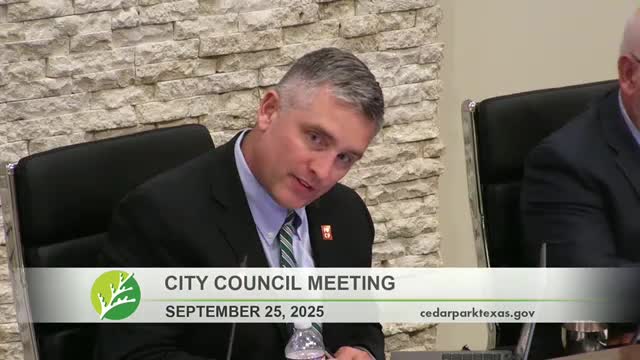
Cedar Park partners with UT Austin landscape architecture program to study 'tiny forest' pilot
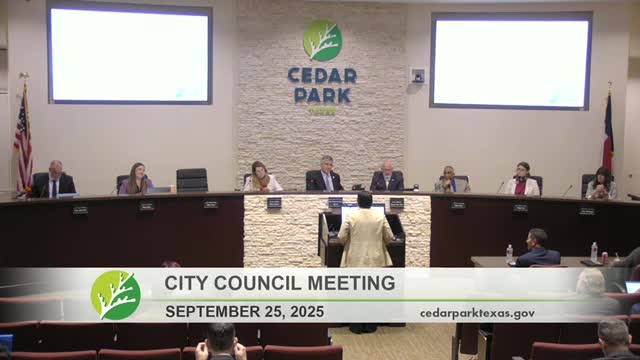
Cedar Park reports stronger-than-expected third-quarter revenues and $9.5M in interest earnings
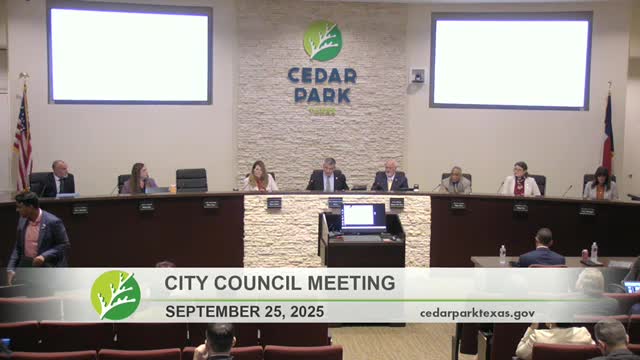
Council proclaims September 2025 Hunger Action Month; Central Texas Food Bank outlines regional need
